Cane
 Cane by Jean Toomer (1923). A hybrid of literary forms—poetry, prose, and drama—and a groundbreaking work of black literature, this book is a collage of portraits of African Americans from the urban North to the rural South.
Cane by Jean Toomer (1923). A hybrid of literary forms—poetry, prose, and drama—and a groundbreaking work of black literature, this book is a collage of portraits of African Americans from the urban North to the rural South.
 Cane by Jean Toomer (1923). A hybrid of literary forms—poetry, prose, and drama—and a groundbreaking work of black literature, this book is a collage of portraits of African Americans from the urban North to the rural South.
Cane by Jean Toomer (1923). A hybrid of literary forms—poetry, prose, and drama—and a groundbreaking work of black literature, this book is a collage of portraits of African Americans from the urban North to the rural South.
 Casa Guidi Windows by Elizabeth Barrett Browning (1851). The first part of this two-thousand-line poem, composed in 1847, reveals Browning’s excitement at the independence she and husband Robert found in Florence.
Casa Guidi Windows by Elizabeth Barrett Browning (1851). The first part of this two-thousand-line poem, composed in 1847, reveals Browning’s excitement at the independence she and husband Robert found in Florence.
 Catch-22 by Joseph Heller (1962). After flying forty-eight missions, Yossarian, a bomber pilot in World War II, is going crazy trying to find an excuse to be grounded. But the military has a catch, Catch 22, which states, (a) a sane man must fight, unless (b) he can prove he is insane, in which case (a) must apply—for what sane person doesn’t want to avoid fighting?
Catch-22 by Joseph Heller (1962). After flying forty-eight missions, Yossarian, a bomber pilot in World War II, is going crazy trying to find an excuse to be grounded. But the military has a catch, Catch 22, which states, (a) a sane man must fight, unless (b) he can prove he is insane, in which case (a) must apply—for what sane person doesn’t want to avoid fighting?
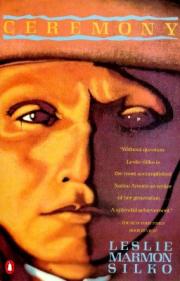 Ceremony by Leslie Marmon Silko (1977). Like many returning soliders, Tayo, who is half white and half Laguna Indian, has a hard time readjusting to civilian life after World War II, when he was held prisoner by the Japanese.
Ceremony by Leslie Marmon Silko (1977). Like many returning soliders, Tayo, who is half white and half Laguna Indian, has a hard time readjusting to civilian life after World War II, when he was held prisoner by the Japanese.
 Charlotte’s Web by E. B. White (1952). If cats have nine lives, pigs have two—at least Wilbur did.
Charlotte’s Web by E. B. White (1952). If cats have nine lives, pigs have two—at least Wilbur did.
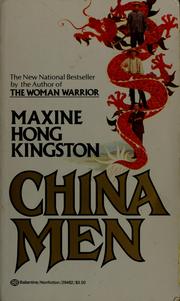 China Men by Maxine Hong Kingston (1980). Kingston won the National Book Award for this richly detailed, multigenerational novel about the Chinese American experience. Drawing on ancient legends, family lore, and history, she begins in the 1840s, with the building of the transcontinental railroad, and continues through the challenges posed by the Vietnam War era.
China Men by Maxine Hong Kingston (1980). Kingston won the National Book Award for this richly detailed, multigenerational novel about the Chinese American experience. Drawing on ancient legends, family lore, and history, she begins in the 1840s, with the building of the transcontinental railroad, and continues through the challenges posed by the Vietnam War era.
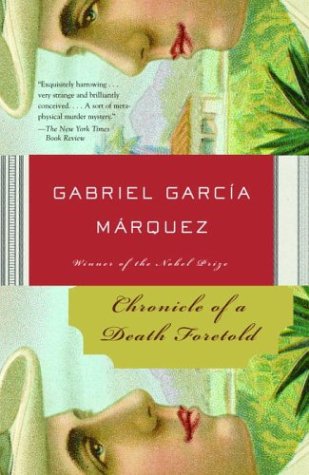 Chronicle of a Death Foretold by Gabriel García Márquez (1983). Everyone knows that Santiago Nasar will be murdered by Pedro and Pablo Vicario when the bishop comes to bless their sister’s marriage. The story of Nasar’s last hours is recounted by his cousin, a reporter who returns to the small South American town twenty-seven years later to find out what happened.
Chronicle of a Death Foretold by Gabriel García Márquez (1983). Everyone knows that Santiago Nasar will be murdered by Pedro and Pablo Vicario when the bishop comes to bless their sister’s marriage. The story of Nasar’s last hours is recounted by his cousin, a reporter who returns to the small South American town twenty-seven years later to find out what happened.
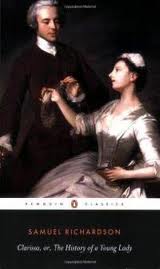 Clarissa by Samuel Richardson (1747–48). This long epistolary novel—full of sexual tension, violence, and psychic conflict—tells the tale of the virtuous Clarissa Harlowe and her rakish suitor, Robert Lovelace. Disowned by her family, confined in a brothel and raped, Clarissa pays a high price for her morality.
Clarissa by Samuel Richardson (1747–48). This long epistolary novel—full of sexual tension, violence, and psychic conflict—tells the tale of the virtuous Clarissa Harlowe and her rakish suitor, Robert Lovelace. Disowned by her family, confined in a brothel and raped, Clarissa pays a high price for her morality.
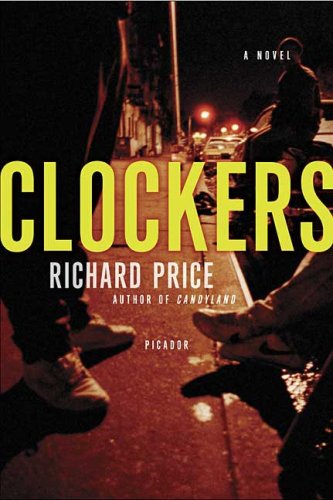 Clockers by Richard Price (1992). When cocaine dealer Strike Dunham’s hardworking brother confesses to murder, burnt-out detective Rocco Klein is convinced that Strike is behind the crime. As Klein turns the ulcer-ridden nineteen-year-old’s world upside down, Price provides a street-level look at America’s drug epidemic and searing portrayals of addiction—to drugs, power, status, and action.
Clockers by Richard Price (1992). When cocaine dealer Strike Dunham’s hardworking brother confesses to murder, burnt-out detective Rocco Klein is convinced that Strike is behind the crime. As Klein turns the ulcer-ridden nineteen-year-old’s world upside down, Price provides a street-level look at America’s drug epidemic and searing portrayals of addiction—to drugs, power, status, and action.
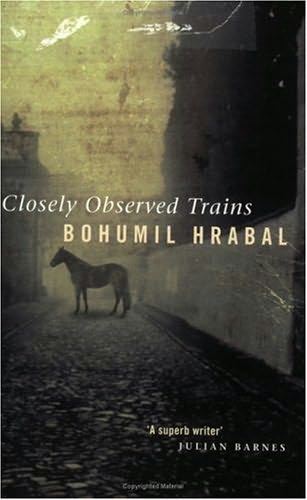 Closely Watched Trains by Bohumil Hrabal (1965). As if he doesn’t have enough trouble living in German-occupied Czechoslovakia during World War II, Milos Hrma learns he is impotent during his first sexual encounter. After trying to commit suicide, he returns to his job tending German trains while imagining ways to reassert his manhood.
Closely Watched Trains by Bohumil Hrabal (1965). As if he doesn’t have enough trouble living in German-occupied Czechoslovakia during World War II, Milos Hrma learns he is impotent during his first sexual encounter. After trying to commit suicide, he returns to his job tending German trains while imagining ways to reassert his manhood.